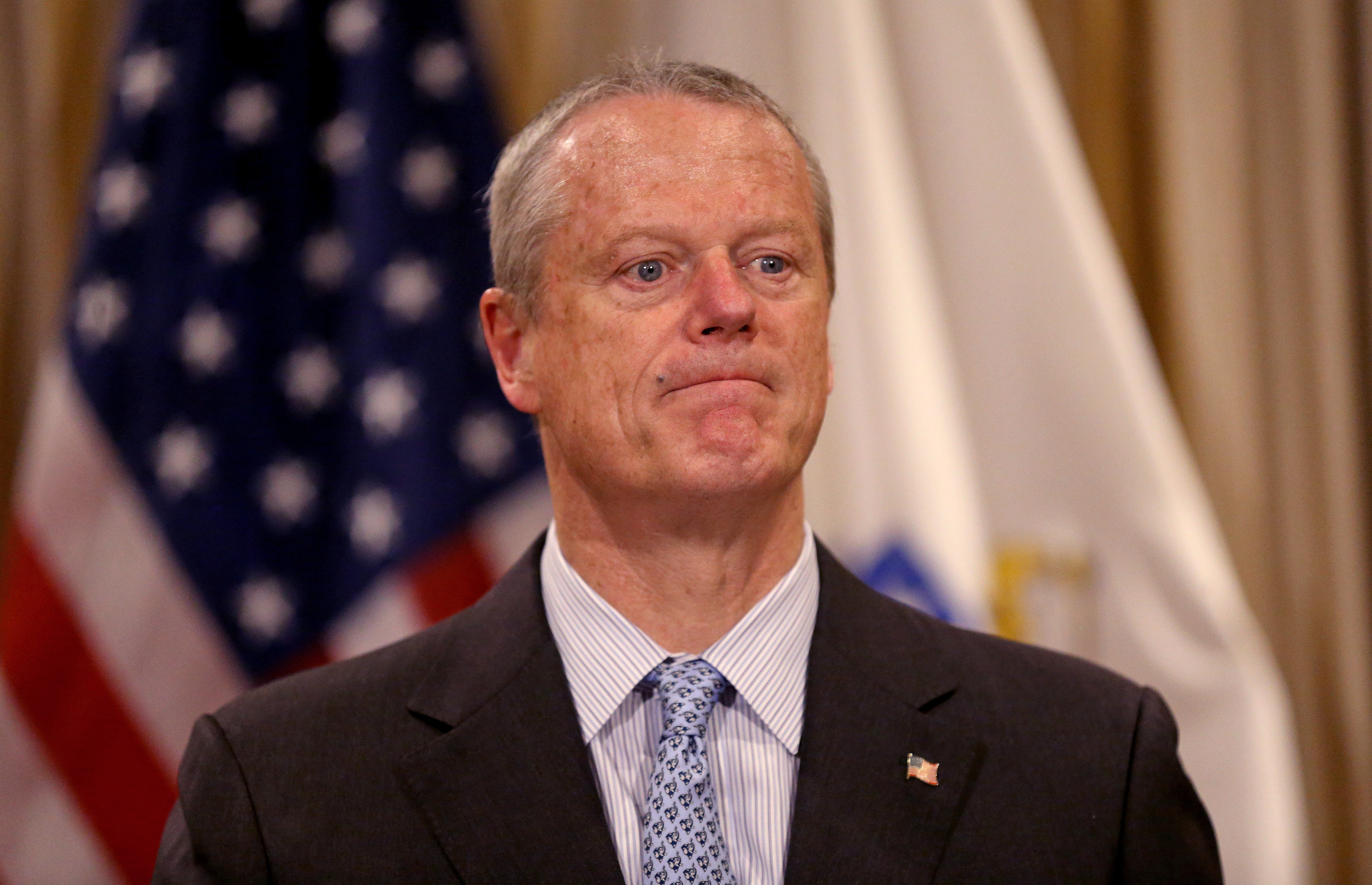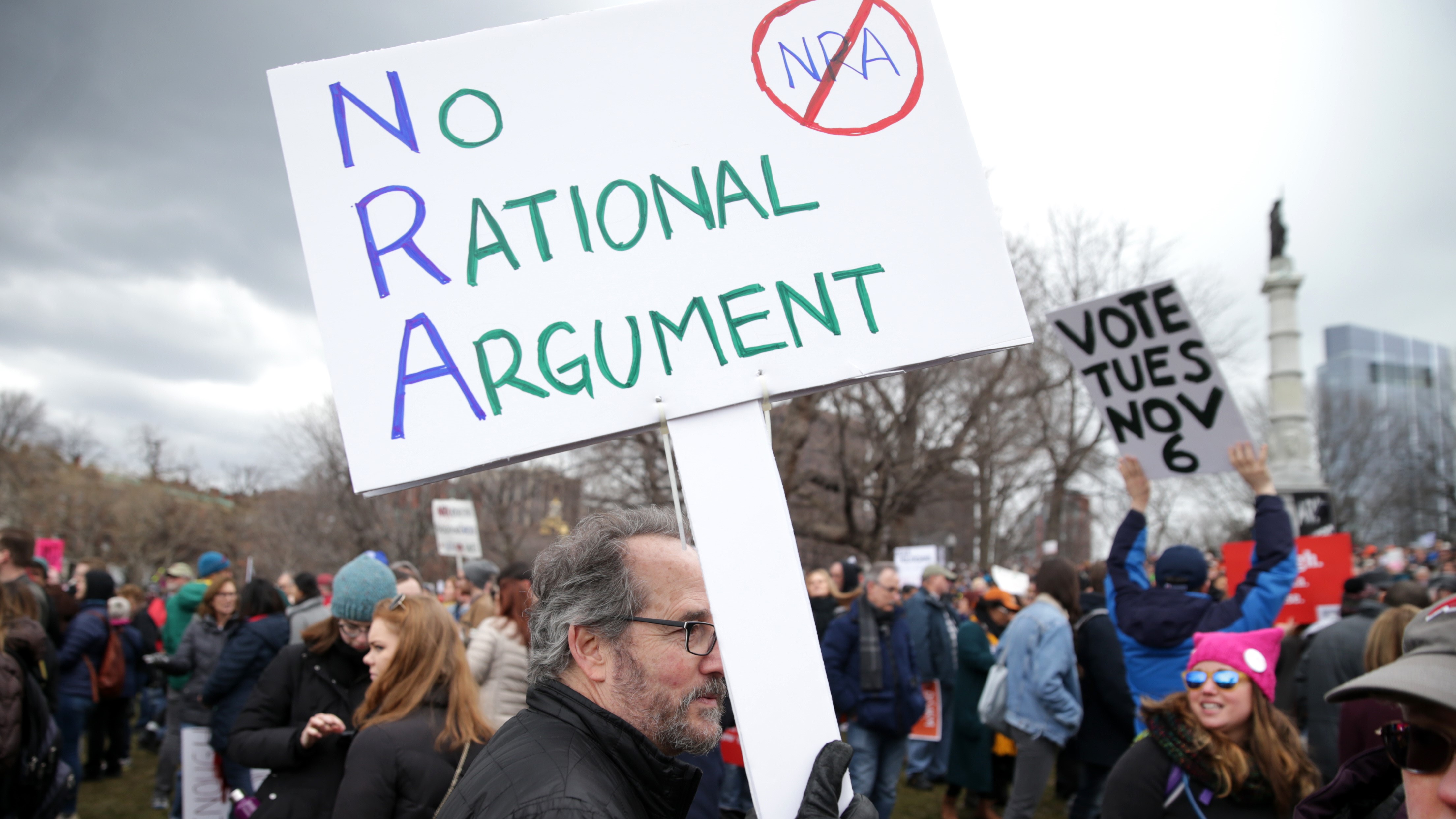The U.S. Supreme Court on Thursday struck down a New York state law that had restricted who could obtain a permit to carry a gun in public. Under the law in place since 1913, New York residents needed to show proper cause, or an actual need, to carry a concealed handgun in public for self-defense.
The justices said that law conflicts with the Second Amendment's right to bear arms. It drew swift reaction from New York Gov. Kathy Hochul, a Democrat who called the decision reckless and said she was prepared to call the Legislature back into session to form a response.
"We do not need people entering our subways, our restaurants and movie theaters with concealed weapons," she said. "We don't need more guns on our streets."
New York and a half a dozen other states with similar laws now must decide their next steps. As with New York, California, Hawaii, Maryland, Massachusetts, New Jersey and Rhode Island all have legislatures controlled by Democrats who could propose measures to ensure that guns will not be allowed in certain places.
Get New England news, weather forecasts and entertainment stories to your inbox. Sign up for NECN newsletters.
Gun rights groups in those states have vowed to continue pushing back against what they view as restrictive gun control laws. Some of those cases eventually could make their way to the nation's high court.
Here's a rundown of the similar laws in New England, reaction to the Supreme Court ruling and what could happen next:
MASSACHUSETTS
Massachusetts' law had given local police chiefs the power to decide whether someone is suitable to have a license to carry a handgun. Police chiefs have been able to deny applicants if they determine that the person would pose a risk to public safety, for reasons such as a history of domestic violence. Those who are denied can appeal to their local district court.
The law says those deemed suitable can get a license to carry if they show "good reason to fear injury" to themselves or their property "or for any other reason," including "for use in sport or target practice only."
What's considered a "good reason" has been up to police chiefs, who vary in what they require of applicants to meet that standard. Some demand that applicants show they have a reason to fear injury that distinguishes them from the general population in order to get an unrestricted license.
Massachusetts courts have ruled that if someone can't show a "good reason to fear injury," police chiefs can put restrictions on licenses that limit when someone can carry a firearm.
State Attorney General Maura Healey said Thursday that she stands by the state's "commonsense gun laws and will continue to vigorously defend and enforce them." The office has not responded to questions from The Associated Press about to what extent Massachusetts' law will be affected by the ruling.
The Baker-Polito Administration said in a statement Thursday night that the ruling would have no immediate effect on Massachusetts law.
“The Baker-Polito Administration is proud of the Commonwealth’s nation-leading gun laws and history of enacting bipartisan gun reform legislation. The Court’s ruling on New York’s licensing law has no immediate effect on the Commonwealth’s gun laws, which all remain in place," the statement reads.
State Rep. David Linksy, a Democrat who has advocated for gun control measures, said he is still examining the ruling but is deeply concerned about its potential effect on police chiefs' ability to use their discretion when issuing gun licenses.
"The end result is there will be an increase in gun violence," he said. "There will be people killed, there will be people injured, and we will all be less safe."
A federal judge wrote in a 2017 case that Massachusetts law is "in some respects" less restrictive than New York's because Massachusetts allows — but doesn't demand— that police chiefs require applicants to "demonstrate a special need for self-defense before being issued an unrestricted license."
Democratic state Rep. Michael Day, House chair of the Legislature's Judiciary Committee, said lawmakers have a range of choices depending on the specifics of the court ruling.
"All options are on the table," he said.
Suffolk County District Attorney Kevin Hayden, Boston's top prosecutor, said he was gravely concerned about the ruling. in a statement
"It's ironic, and perhaps tragic, that just as the nation’s top legislative body is formulating sensible firearm regulations, its top judicial body is undoing them," he said in a statement, referring to a U.S. Senate gun regulation deal that cleared an important procedural hurdle Thursday. "We must never forget that included in the 2nd Amendment’s establishment of citizen gun ownership are the words 'well-regulated.'"
RHODE ISLAND
The state attorney general's office said there are similarities between Rhode Island's law and the one in New York that was struck down, but also important differences between the two states' statutory schemes for concealed carry permits.
Rhode Island has separate laws dealing with permits issued from municipalities and permits issued from the state attorney general's office. In 2018, the office filed an amicus brief in a case to defend the constitutionality of a Massachusetts gun law, noting that Rhode Island's concealed carry permit has been upheld by the Rhode Island Supreme Court. The court found that the state constitutional right to keep and bear arms is an individual right, subject to reasonable regulation by the state.
The attorney general and governor's offices said they would review the Supreme Court decision for its impacts on the state. The Rhode Island 2nd Amendment Coalition did not immediately respond to requests for comment about whether it would seek to challenge the permitting process in Rhode Island.
Any response from the legislature would likely have to wait until next year, but Democratic state Rep. Robert Craven said Thursday he wasn't surprised by the ruling.
"I see the court headed in that direction," he said. "It's taking a stricter interpretation that the Second Amendment is absolute -- It says what it says, you have a right to bear arms."
Craven, an attorney and chairman of the House Judiciary Committee, questioned whether the court will now use that same thought process for cases about banning military-style weapons.



